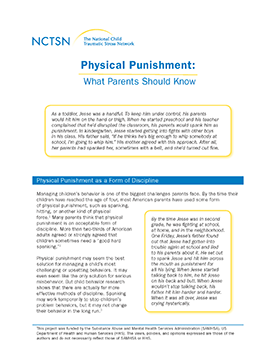
Physical Punishment: What Parents Should Know
Provides parents with information on the negative impact of physical punishment, and introduces parents to effective alternatives to physically disciplining their children.
Parents and caregivers play an essential role in helping children and teenagers recover from traumatic events. These resources are for parents, adoptive parents, resource/foster parents, grandparents, caregivers, and all others who care for children and teens. The more caregivers learn about how traumatic events affect their children (whether toddler, school-age, teen, youth, or adult), the more they understand the reasons for their children’s behaviors and emotions, and the better prepared they are to help them cope. When children know that caring adults are working to keep them safe and support them in understanding their reactions to trauma, most can recover and go on to live healthy and productive lives.

Provides parents with information on the negative impact of physical punishment, and introduces parents to effective alternatives to physically disciplining their children.
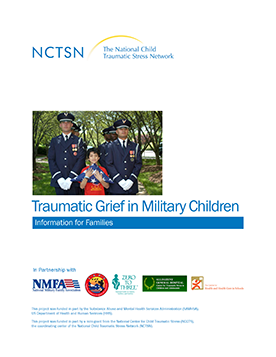
Provides parents and caregivers with information about traumatic grief in military children.
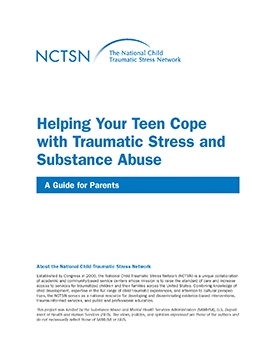
Provides information for parents and caregivers whose teen might be or is experiencing substance abuse and/or stress from a traumatic event. This fact sheet is a part Understanding the Links Between Adolescent Trauma and Substance Abuse: A Toolkit for Providers.
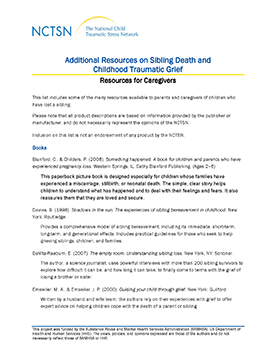
Gives a list of resources for parents and caregivers who have children experiencing childhood traumatic grief. This list includes a breakdown of resources by medium type such as books or videos.
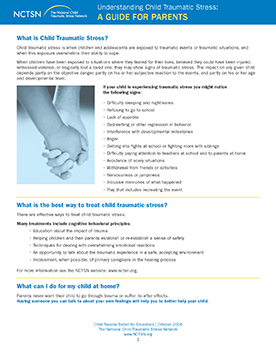
Offers parents information about child traumatic stress (CTS), the best way to treat CTS, what parents can do at home for their children, and how parents can make sure their children receive support at school.

Offers caregivers advice on helping children deal with the complex emotions that arise when the death of family member or other important person in a child's life is suspected, but not confirmed.
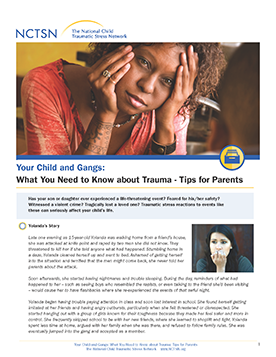
Provides parents and caregivers with information gangs and trauma. This fact sheet offers a brief vignettes about teens who have become involved with local gangs.

Summarizes the signs of intoxication, substance use, and abuse commonly reported by substance users. This guide for parents and caregivers describes different substances teens use, how a teen may look when on that substance, how they may act, and how the substance may make them feel.
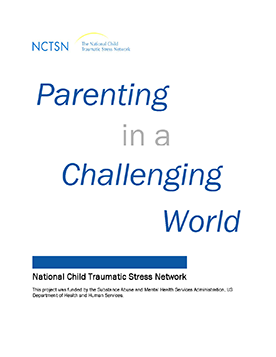
Looks at parenting concerns, with the help of scenes from the documentary film Surviving September 11th: The story of One New York Family. The guide and film address a terrorist attack.
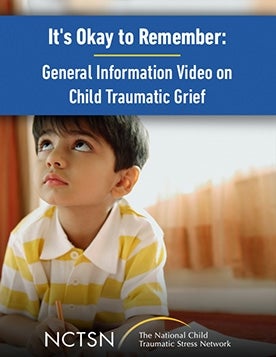
Features a first-person narrative illustrating how a family can move through the pain of loss and go on to heal. The family shares their personal experiences of the traumatic grief experienced by one daughter after her sister's sudden death.
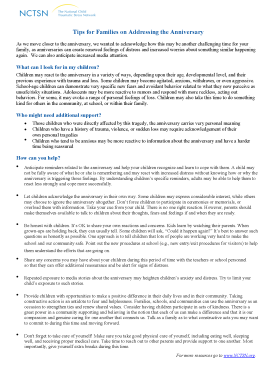
Offers parents and caregivers information about ways that children may respond to the anniversary of a traumatic event.
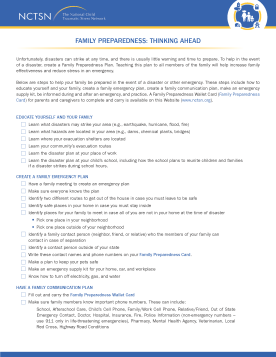
Accompanies the Family Preparedness Wallet Card. This guide helps families develop a safety plan so that they may be prepared in the event of disasters.